Introduction
Many of us depend on our morning coffee to get us going at the start of the day. I know I'm a mess if I don't get mine!
Contrary to the old perception that coffee is bad for us there is a growing amount of evidence that it is actually probably very good for our health in many different ways.
I would like to give a brief overview of some of the health benefits in this post.
I have tried to keep a balance between referencing the evidence and also trying to keep this simple enough for non medical people to read.
In relation to the reseach which I discuss most studies consider low intake to be 1-2 cups per day, moderate is 3-4 and high is 5-6 (or higher).
N.B.: This is not intended as medical advice. If you have been advised by your physician or other health professional to avoid caffeine I suggest that you discuss it with them before you make any changes to your coffee consumption.
The Composition of Coffee
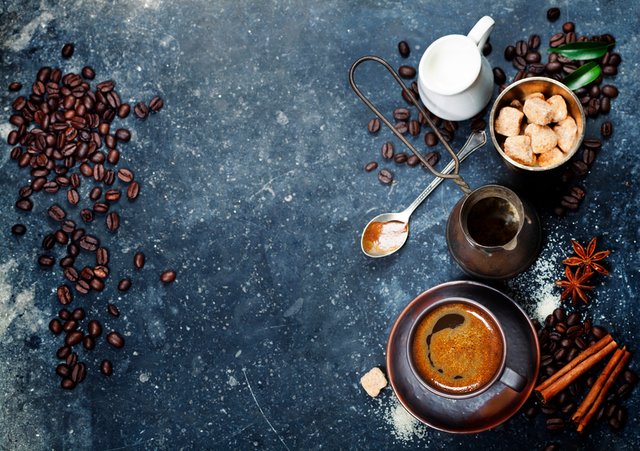
Coffee contains hundreds of active compounds. The main ones that have been studied can be broken down into a number of groups. Note many of these compounds have multiple effects.
- Caffeine - a stimulant which inhibits adenosine (an inhibitory neurotransmitter which is related to drowsiness and sleep)
- Antioxidants - these protect against damage to cells from reactive compounds such as free radicals and have effects on inflammation.
- Chlorogenic acids (also seems to have direct effects on bile and biles salts)
- Phenolic acid
- Caffeic Acid
- Antimutagenics - these protect DNA against damage but are probably also antioxidants.
- tannins and flavonoids and other polyphenols
- Suspected hormone like agents - these may have an effect similar to hormone replacement in deficient individuals
- Trigonelline (sparse research but may mimic oestrogens) and others
1) Coffee can improve your cardiovascular health
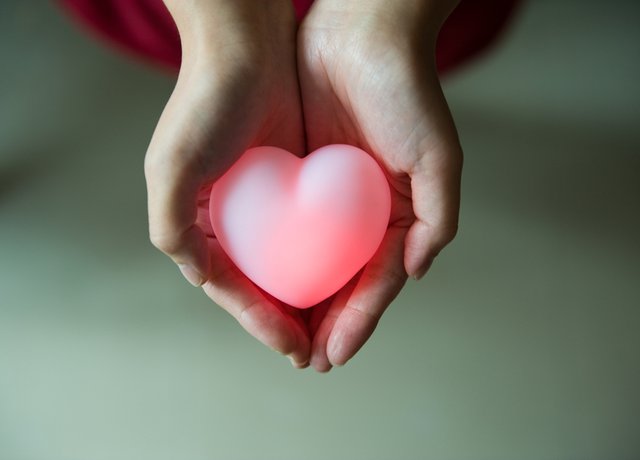
Caffeine is known to increase blood pressure (BP) this is generally a bad thing when it comes to your heart and blood vessels. However the long term effect on BP from coffee (rather than pure caffeine) appears much smaller. Further the potential increase to cardiovascular risks from a raised BP seems to actually be negated by a number of other factors.
Known effects that actually reduce cardiovascular risk:
- Reduces Low Density Lipoprotein Oxidation - a "bad" form of cholesterol, it's oxidation is associated with damage to blood vessels called atherosclerosis (also know as furring up of the arteries).
- Reduces concentrations of inflammatory markers which are associated with cardiovascular disease - this suggests that coffee is reducing general amounts of inflammation in the body.
- Moderate intake reduces CHD risk (coronary heart disease - blocking of the blood vessels which causes heart attacks) - see study below.
- 2 cups per day can protect against heart failure.
- There is NO association with cardiac arrhythmias (abnormal heart rhythms) despite previous beliefs - this is important because in the past people with certain types of arrhythmias were advised to avoid coffee.
Notable Research
- Too much too fit here in relation to all the points above. One notable study by Choi et al (in the Journal Heart) from 2015 found a lower prevalence of subclinical coronary atherosclerosis (furring of the arteries of the heart prior to a heart attack) in coffee drinkers.
2) Coffee can prevent Strokes
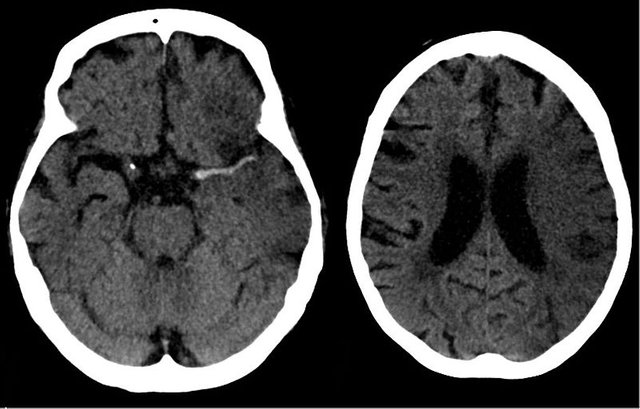
This is a bit of a paradox.
Stroke risk is normally related to rises in blood pressure.
Coffee can cause at least transient rises in blood pressure (as noted above), however, contrary to what one would expect based on this it actually reduces the risk of ischaemic strokes (ischaemia means a lack of blood and refers to a blocked blood vessel in the brain here).
- A 2011 meta analysis by Larson et al (Am J Epidemiol. )found a 17% reduction in stroke risk.
- A Swedish Study on women also by Larson et al (in Stroke) found 22-25% risk reduction.
- 2013 Japanese study by Kokubo et al (Stroke) of 80,000 adults with CVD reported 20% reduction in ischaemic stroke from drinking coffee/green tea over 13 years.
Note (image above shows a CT scan of a patient who has had a stroke. - Specifically a middle cerebral artery infarction.)
3)Coffee can reduce the risk of developing Type 2 Diabetes
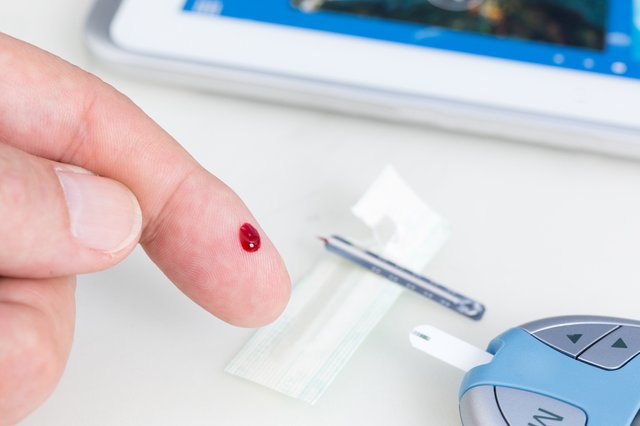
Multiple studies have shown that coffee results in improved glucose metabolism, insulin secretion and reduced risk for diabetes.
Coffee reduces inflammatory markers such as amyloid and CRP (C-Reactive Protein) which are know to precede the onset of type 2 diabetes.
The effects may relate primarily to the chlorogenic acid content.
Notable recent research:
- A 2015 Study by Koloverou et al in European Journal of Clinical Nutrition showed that coffee drinkers are half as likely to develop type 2 diabetes compared to non drinkers
4) Coffee can reduce the risk of developing multiple types of Cancer
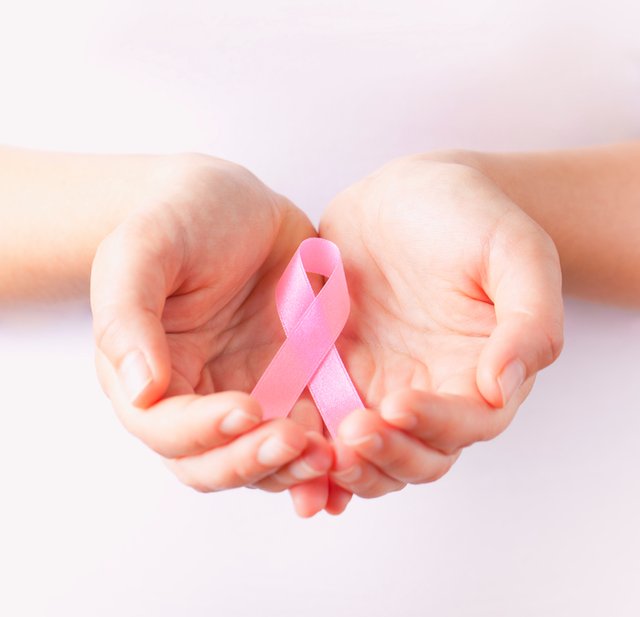
There is considerable evidence on coffee reducing a variety of cancers.
This is thought to be due to antioxidants including cholorogenic acids and antimutagenic compounds such as polyphenols/flavonoids.
These are thought to act by protecting DNA from damage and may also assist in DNA repair.
A reduction in cancer risk has been observed in the following cancer types:
- Endometrial Cancer (lining of the uterus/womb)
- Prostate Cancer
- Head and Neck Cancers
- Basal Cell Carcinoma (a type of skin cancer)
- Melanoma (cancer involving the cells that pigment the skin)
- Breast Cancer
Notable recent research:
- There is too much notable research to list here due to the vast range of cancers affected but a search on Medline will reveal the extensive evidence.
5) Coffee can reduce the risk of developing Depression
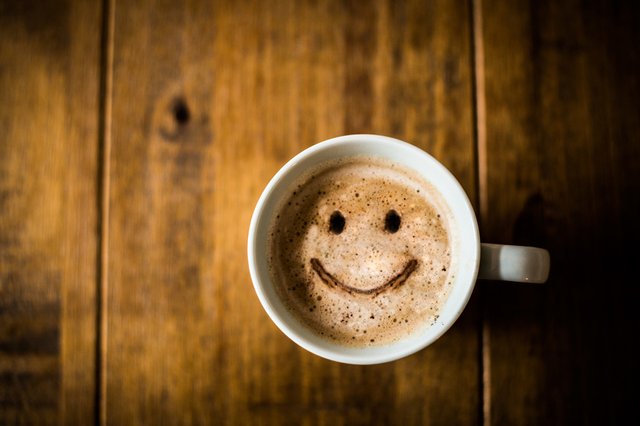
I think that most people have probably noticed a transient effect from coffee drinking on their mood (most likely due to caffeine). What is more surprising is that it also seems to have long term protective effects against depression.
These long term effects are most likely due to anti-inflammatory effects from the many varied antioxidants that coffee contains.
Notable recent research:
- A 2011 study by Lucas et al in the Achives of Internal Medicine found that women drinking 2-3 cups of coffee per day had a 15% reduced risk of depression,
- The effect was even greater for women drinking 4 cups or more of coffee per day resulting in a 20% decreased risk of depression.
6) Coffee can reduce the risk of developing Alzheimer's Disease (AD), Parkinson's Disease (PD) and Other Dementias
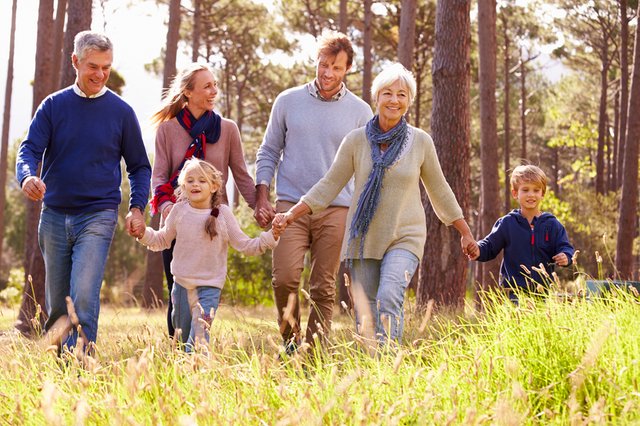
We have an ageing population and as a result of this we have seen a massive increase in dementias - these are a group of diseases that involve degeneration of the brain. The most well known of these is Alzheimer's disease.
Dementias have a devastating effect on families - for example in AD families watch as their affected loved one's personality and memories gradually degenerate over time.
For many years it had been observed that coffee and caffeine seemed to have some benefits in dementia risk and disease progression.
A growing body of research is supporting this.
Studies in mice suggest that caffeine directly surpresses enzymes involved in the production of beta-amyloid (a type of protein which is associated with AD).
Coffee also increases granulocyte colony-stimulating factor (stimulates production of certain types of white cells), interleukin 10 and interleukin 6 (both inflammatory mediators).
These are related to inflammation and indicate that some of the effect may be via changes in the immune system.
Notable recent research:
- A 2012 study by Borota et al in Nature Neuroscience found that people with mild cognitivie impairment (a precursor of dementia) that had higher blood caffeine concentrations had a reduced risk of progression to dementia over next 2-4 years.
- A 2012 study by Ross et al (presented at the 64th Annual Meeting of the American Academy of Neurology) found that coffee may prevent formation of Lewy Bodies a key pathological finding in PD.
7) Coffee is good for your liver
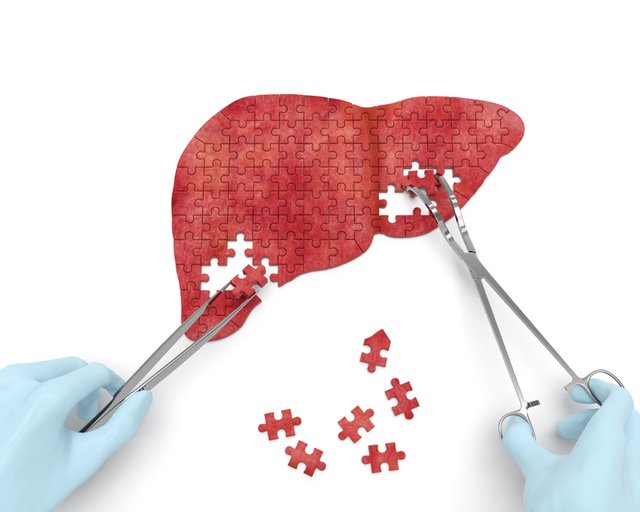
Most of the active compounds in coffee are broken down in the liver. Ironically it seems that this also confers considerable heath benefits to the liver itself.
The Chlorogenic acid in coffee is thought to be responsible for a reduction in the risk of gallstones in coffee drinkers.
Coffee also lowers the risk for non alcoholic fatty liver disease (NAFLD) - this is a growing problem and cause of liver failure in modern society. The main cause of it seems to be growing rates of obesity.
Coffee also slows the progression and may even reverse cirrhosis to some extent . It also slows the progression of Hepatitis C.
Further, in both of these diseases it also reduces the progression to hepatocellular carcinoma which is a potential secondary risk.
Notable recent research:
- A 2012 study by Birerdinc et al (Aliment Pharmacol Ther.) found a lower risk for nonalcoholic fatty liver disease (NAFLD) in coffee drinkers.
- A 2014 study by Saab et al (Liver Int.) found coffee protects against liver fibrosis in those who already have NAFLD.
8) Coffee has some miscellaneous benefits too
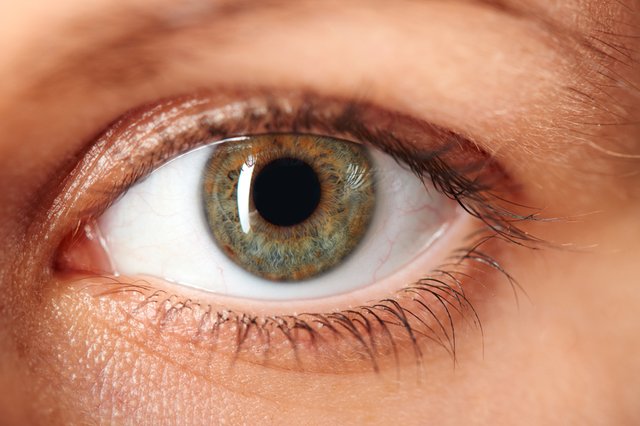
There are other less well know benefits which have been reported from coffee drinking. For example coffee can relieve dry eyes by increasing tear production - which can actually be very helpful for people who suffer problems with tear production. It may also reduce the risk of people developing gout and may have benefits in fighting infection.
Notable recent research:
- A 2011 study by Matheson et al (Ann Fam Med.) found that people who drank coffee (or tea) were less likely to have MRSA (Methicillin Resistant Staphylococcus aureus) in their noses.
- A 2007 study by Choi HK et al (Arthritis Rheum.) found a reduced risk for gout in men.
9) Coffee seems to reduce death from all causes
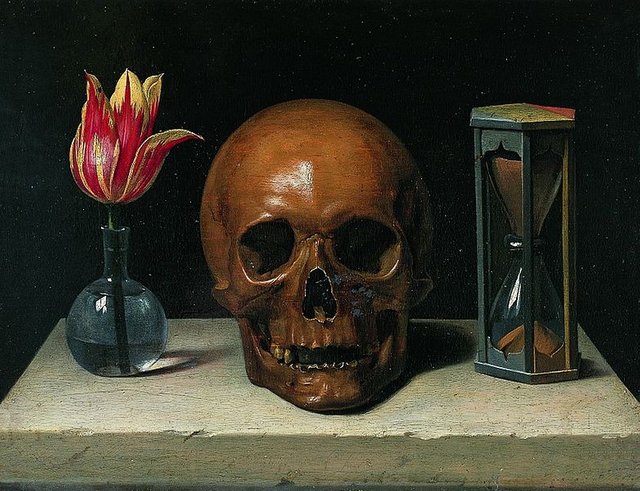
Due to the vast array of chemicals contained in coffee and the health benefits it confers to multiple systems of the body it is perhaps not surprising that it also has an effect on mortality.
Notable recent research:
- A 2012 Study of 400,000 patients in the New England Journal of Medicine (by Freedman et al) found a 10% reduction in all causes of mortality.
- A 2014 Meta-analysis in the American Journal of Epidemiology (by Crippa et al) reported significant reduction in all causes of death associated with consumption of 3-4 cups per day.
10)It's not all good news though
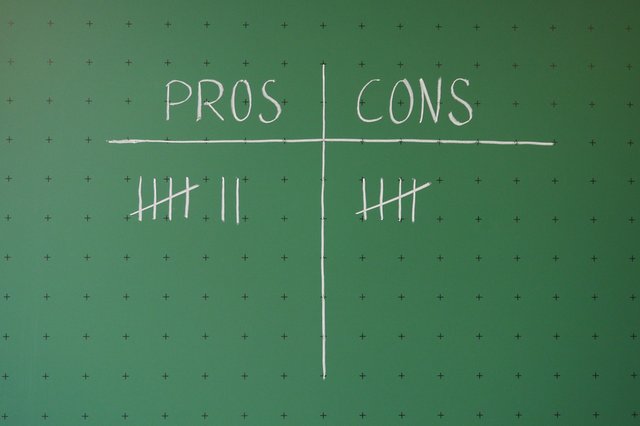
Nothing is 100% beneficial and coffee is no different. As I have stated before coffee is a mixture of hundreds or more different organic compounds.
As previously mentioned coffee can cause transient increases in blood pressure this may be of relevance to people who have certain conditions where their blood pressure needs to be tightly regulated. It is also a mild diuretic and can cause dehydration if taken in excess.
As many of us know from personal experience it can worsen anxiety, cause insomnia, and exaggerate tremors. These are dose related effects and become worse the more that you drink.
It can also worsen glaucoma - which is why you might be advised to stop or reduce your intake if you suffer from this condition.
Finally coffee and more specifically caffeine has a known withdrawal syndrome - do you get a throbbing headache if you miss your daily dose? - That is the withdrawal syndrome. In severe cases this can cause throbbing migraine like headaches.
For those who don't have a copy of DSM V (Diagnostic and Statistical Manual V of the American Psychiatric Association) a 2013 Wall Street Journal article summarises the criteria for caffeine withrawal from DSM V as follows:
"To be diagnosed with caffeine withdrawal, a patient must experience at least three of five symptoms within 24 hours of stopping or reducing caffeine intake: headache, fatigue or drowsiness, depressed mood or irritability, difficulty concentrating, and flulike symptoms such as nausea or muscle pain."
Whilst addiction potential is considered low for coffee it is still possible and it is not rare to come across individuals who are at the very least psychologically dependent if not addicted.
Conclusion
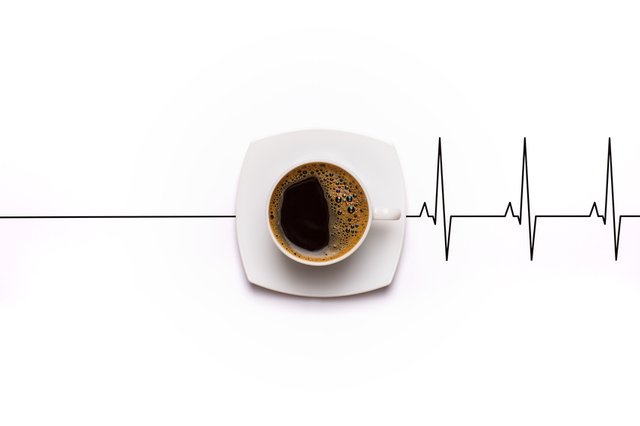
On the whole the evidence is growing that coffee is very good for us. It seems to protect us against many diseases. That said it it can also be problematic in certain circumstances. Always consult your doctor or health professional before making any changes to your diet including coffee consumption.
Thank you for reading. I hope you have found it stimulating and interesting to read.
If you like my work please follow me and check out my previous photography work and tutorials @thecryptofiend - hope you enjoy them too.
Credits and Notes:
This is based on my own notes from a Medscape presentation by Dr Bret S. Stetka from 2015 and I would have found it considerably more difficult to put this together if it hadn't been for Dr Stetka's comprehensive review of the literature. I used the presentation as a framework and added in my own reading and findings to it. If you are interested in seeing the presentation there is an archived slide show here (medical registration and Medscape account required for access).
Credits for images - All Images are purchased from Istockphoto using my own personal account except for Image of CT scan of a stroke and Skull Painting which are both public domain and taken from Wikipedia. Further information can be provided if requested.
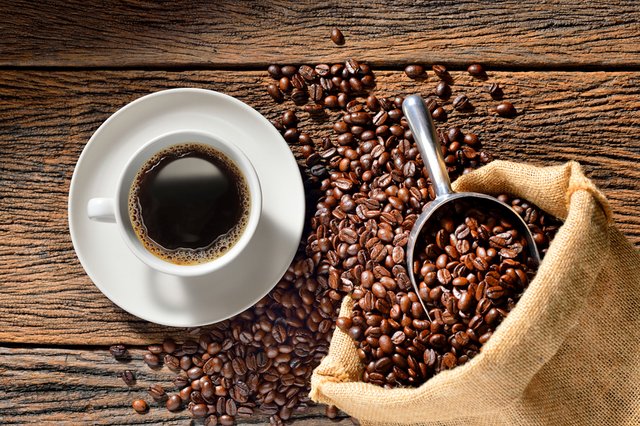
Hi ! @thecryptofiend !! Even I am also a great lover of black coffee ...!! Reading your interesting blog smells me of the coffee and forced me to make a hot cup of it ..!!! 😋...!!! Well !! Coffee also boost our basic metabolism rate which helps our stubborn fat to burn fast and hence helps in weight loss ...!!! 👍🏻...!! Hope this advice will help the other readers 👨🏫..!! Well done Grear job ..!!
Downvoting a post can decrease pending rewards and make it less visible. Common reasons:
Submit
Thank you:)
Downvoting a post can decrease pending rewards and make it less visible. Common reasons:
Submit
Welcome bro 👍🏻
Downvoting a post can decrease pending rewards and make it less visible. Common reasons:
Submit
Downvoting a post can decrease pending rewards and make it less visible. Common reasons:
Submit
That looks great. Where can I get that? I'm assuming it's a touch on the "dark side" roast wise:)
Downvoting a post can decrease pending rewards and make it less visible. Common reasons:
Submit
You made me spit out my coffee... but known can tell in here.
Downvoting a post can decrease pending rewards and make it less visible. Common reasons:
Submit
Don't let my girlfriend see this... she already drinks 2 cups a day...
I have to wonder though, it seems every couple of years everyone decides coffee is good for you, then everyone decides it's bad for you... which one is the truth?!
Downvoting a post can decrease pending rewards and make it less visible. Common reasons:
Submit
I understand your frustration. I drink six cups some days. The general consensus is that coffee is good for you except in certain select circumstances in which case your doctor will normally advise you to avoid coffee.
That said a lot of the earlier advice was based on educated assumptions and observations that have since proven to be untrue. I would say the truth is it is good for you BUT like anything else it should be taken in moderation - the most that there is evidence for is about 6 cups per day in some of the studies. Downing 20 cups per day may not be good for you!
Also if you are not a regular coffee drinker and suffer from any chronic illnesses you should discuss it with your doctor first especially if you have been told not to take coffee.
Downvoting a post can decrease pending rewards and make it less visible. Common reasons:
Submit
I see... so the health benefits you posted is the latest concensus then among medical experts? I remember a couple years ago hearing coffee was great for your heart, then a couple years later they said it may cause cancer, then just recently I read that coffee decreases cancer risk and has numerous health benefits even drinking large quantities... I wish they would make up their mind :)
I am not a coffee drinker at all, in fact, I avoid the stuff. However, if I knew there were health benefits I would probably start drinking it because I am all about being the healthiest I can be :)
Downvoting a post can decrease pending rewards and make it less visible. Common reasons:
Submit
Certain types of roasting may create carcinogens which is what I think you may have heard but this was looking at the actual compounds in the coffee and not the actual overall effect of consumption in people.
Also if you drink your coffee or tea super hot (which some people do) on a regular basis that may actually increase your risk of developing oral and oesophageal cancers - I read a paper on it some time back. This effect relates to actually causing repeated low level burns to to the upper part of your alimentary tract and results in something called squamous metaplasia which is a precursor to cancer. I suspect you may also have read about this too.
So don't have your coffee when it is burning hot and you may be better off avoiding certain very extreme roasts where it is burnt beyond recognition. Generally anything that is cooked to the point of burning is probably not good for you.
Downvoting a post can decrease pending rewards and make it less visible. Common reasons:
Submit
Yeah - this is pretty accurate. Much of the dark-roasted grocer brands (like Folgers and Maxwell House) are actually just burnt coffee. I explained why this occurs in my last coffee post. Basically - it masks the fact that the coffee beans are a poor quality and blended with different beans or beans from different regions. So, if you want to avoid terrible coffee, just avoid most grocery stores and don't buy dark roasts.
If you're looking for good coffee, find a nice medium roast, premium or specialty-grade arabica beans. You can occassionally find a decent "blend," but I would recommend a single-origin. Get them in whole bean and grind as you go for the best results - it will keep from staling as quickly. If you don't like hot coffee or want to avoid any of the heat-related health issues, then just cold-brew the coffee. It's delightful!
@jrcornel - If you want to learn more about any of that, take a look at my series, Make Your Coffee Great Again! All original content, including the images. You really won't find a series like it anywhere else.
Downvoting a post can decrease pending rewards and make it less visible. Common reasons:
Submit
Certain types of roasting may create carcinogens
hmmm
Years ago (no source, just memory) it seem I heard that the way coffee is prepared matters.
Drip (filtered) vs Percolated.
Filtered = good
Percolated = bad.
Downvoting a post can decrease pending rewards and make it less visible. Common reasons:
Submit
Two cups a day? piffle. I drink twenty or thirty cups a day. Have been since the seventies.
I wear out cheap coffee makers (Mr. Coffee for example) in about three months. The only brand that I've discovered that will stand the gaff is BUNN
In my 'not so humble' opinion the only good thing about Starbux is that it is coffee...or at least they claim it is. If nothing else is available I will drink Starbux...and only then. Even vending machine instant is better.
Downvoting a post can decrease pending rewards and make it less visible. Common reasons:
Submit
I love percolated coffee even though boisl it (which you aren't meant to do). I used to drink 20 a day at one point but it was weak hospital coffee.
Downvoting a post can decrease pending rewards and make it less visible. Common reasons:
Submit
When I say 2 cups per day I do not mean 2 normal size coffee mugs. I am talking a thermos that she takes to work and then a massive cup when she gets home... It would probably equate to at least 12 cups total...
Downvoting a post can decrease pending rewards and make it less visible. Common reasons:
Submit
OK well that is a decent amount then!
Downvoting a post can decrease pending rewards and make it less visible. Common reasons:
Submit
Downvoting a post can decrease pending rewards and make it less visible. Common reasons:
Submit
Bunn & Wearing = pro !
Downvoting a post can decrease pending rewards and make it less visible. Common reasons:
Submit
ps. been in starbucks 3 times ... 2 to use restroom, 1 to use wifi .. buy coffee ...0 $4+ for a cup ? LMAo Really !!!!
Downvoting a post can decrease pending rewards and make it less visible. Common reasons:
Submit
What is that?
Downvoting a post can decrease pending rewards and make it less visible. Common reasons:
Submit
?Bun and Wearing ? ... come to chat
Downvoting a post can decrease pending rewards and make it less visible. Common reasons:
Submit
@jtstreetman Yes Bun and Wearing. Need to go to bed now as it is after 4.25 am here! Will check it out tomorrow. Which channel?
Downvoting a post can decrease pending rewards and make it less visible. Common reasons:
Submit
as you get older you just roll with the flow, this yr, 2 cups day, last year 4, next prob 4 again, like eggs ... 2 a day this yr ? so I'm good ... so w/e, lol
Downvoting a post can decrease pending rewards and make it less visible. Common reasons:
Submit
I vary quite a lot too. I go through cycles where I cut back on coffee and drink more tea and the balance keeps shifting. I never completely stop though except for one or two times in my life.
Downvoting a post can decrease pending rewards and make it less visible. Common reasons:
Submit
I quit drinking coffee once.
Worst hour of my life.
Downvoting a post can decrease pending rewards and make it less visible. Common reasons:
Submit
Lol:)
Downvoting a post can decrease pending rewards and make it less visible. Common reasons:
Submit
Great post, as an ardent coffee aficionado / connoisseur I am a true lover of coffee so this was a great read! Thanks.... but I do wonder... how many cups of coffee did it take to write this post?
Downvoting a post can decrease pending rewards and make it less visible. Common reasons:
Submit
About seven:)
Downvoting a post can decrease pending rewards and make it less visible. Common reasons:
Submit
Nice!!!
Downvoting a post can decrease pending rewards and make it less visible. Common reasons:
Submit
Yes I think like most things when you have been drinking it for a while you build up a tolerance (particularly to the effects of caffeine). So it is easy to drink more than the average person. I like the taste too. In the past I would have had substantially more but I don't think that is a good think to do with anything.
Downvoting a post can decrease pending rewards and make it less visible. Common reasons:
Submit
Very exhaustive post.
3 cups a day seems like a lot. Some people have gotta get their medicine though.
The rumour is though, every couple of years the pendulum swings with coffee, red wine and chocolate. Sometimes the science says they're healthy, sometimes it swings back to unhealthy. So, sometimes it seems like these studies can be a pick and mix, where you can choose what facts you want... What do you think; is the evidence really that strong in favour of the health benefits?
Downvoting a post can decrease pending rewards and make it less visible. Common reasons:
Submit
3 cups is nothing for me lol!
The evidence is that strong now and has been for a while. I don't see how it can be reversed in relation to the topics above - the probability is very low - not zero - it can never be zero but as close as you can get.
The problem is the previous dogma was based on anecdotal evidence in many cases and people used to cherry picked the odd anomalous study that didn't really fit with the overall trend but fit the old narrative. Some of the recent trial have been absolutely huge and have eliminated a lot of confounding factors. In science you can never be a 100% certain.
Much of the research is based on observational studies which is not as powerful from an evidence stand point as a placebo controlled trial. Then again it would be difficult to randomly assign people to drink coffee or not and stick to it for several years and continue following them up which is what would be required to do similar kinds of health studies using RCTs.
We might still get the odd contradictory study due to design errors or mistakes in interpreting the data but I think that it is highly unlikely that we will get a reversal in regards to the conditions that are mentioned.
That said as I state in the post coffee is a mixture of many compounds and there may yet be some diseases for which the risk is increased but we have not detected it yet. As always nature and health is complex.
Downvoting a post can decrease pending rewards and make it less visible. Common reasons:
Submit
Is coffee some sort of magical cureall? No. Is it a part of a healthy diet with some beneficial properties, the research says yes. Should you go out of your way to consume tons of coffee? No probably not, but if you like it you should at least drink it knowing its certainly a healthy option.
Downvoting a post can decrease pending rewards and make it less visible. Common reasons:
Submit
My 5-6 cups a day should kill everything!!

Downvoting a post can decrease pending rewards and make it less visible. Common reasons:
Submit
Yes. Particularly if it is as strong as I make it.
Downvoting a post can decrease pending rewards and make it less visible. Common reasons:
Submit
This kind of post complements my own coffee posts very well. I'll take care of the production and consumer side, you handle the health side, and together...we take over the world?
Downvoting a post can decrease pending rewards and make it less visible. Common reasons:
Submit
Lol. Sure:)
Downvoting a post can decrease pending rewards and make it less visible. Common reasons:
Submit
been awhile since I checked ...How goes it on the project down South ? need to watch your post, lol, been busy, Good luck Bro !, I like your ideas !
Downvoting a post can decrease pending rewards and make it less visible. Common reasons:
Submit
And coffee stops Karen from killing her hubby every morning that's enough reason for me . As they say everything in moderation :)
Downvoting a post can decrease pending rewards and make it less visible. Common reasons:
Submit
Lol:)
Downvoting a post can decrease pending rewards and make it less visible. Common reasons:
Submit
To be truthful I think hubby needs his coffee more as I can be a right pain lol
Downvoting a post can decrease pending rewards and make it less visible. Common reasons:
Submit
I think we all need it:)
Downvoting a post can decrease pending rewards and make it less visible. Common reasons:
Submit
You want to kill me too lol
Downvoting a post can decrease pending rewards and make it less visible. Common reasons:
Submit
Downvoting a post can decrease pending rewards and make it less visible. Common reasons:
Submit
damn .. Well said, another R. A. H. Fan i see !
Downvoting a post can decrease pending rewards and make it less visible. Common reasons:
Submit
Isn't everyone? I thought everyone knew of Heinlein. My most favorite book when I was a young lad was Have Space Suit Will Travel later it was StarShip Troopers I've read the book countless times but I REFUSE to see the movie. The only thing similar about the book and the movie is the name. (ahem) even later Moon Is A Harsh Mistress introduced me to AI. Then later Friday
I could go on and on. He never failed to please. He WAS controversial, but that what a feature, not a bug.
Downvoting a post can decrease pending rewards and make it less visible. Common reasons:
Submit
I've not heard of him before.
Downvoting a post can decrease pending rewards and make it less visible. Common reasons:
Submit
Sounds like he has or had a good plan.
Downvoting a post can decrease pending rewards and make it less visible. Common reasons:
Submit
I do like him he speaks a lot of sense :)
Downvoting a post can decrease pending rewards and make it less visible. Common reasons:
Submit
This is great information for coffee lovers like myself! Now I can enjoy a cup of coffee even more knowing some of these benefits! Thank you! ☕️
Downvoting a post can decrease pending rewards and make it less visible. Common reasons:
Submit
Me too lol. This is just scratching the surface there is so much research. I would like to do a more academic post as some point looking at met-analyses on the topic in some detail. Unfortunately I will need full University access to get hold of the full articles which I don't have right now because I have been away from work due to ill health. Once I get back it will be easier although I won't have as much time.
Downvoting a post can decrease pending rewards and make it less visible. Common reasons:
Submit
I really used to feel guilty about my love of drinking coffee thinking it was a bad thing. Not after reading your article, lol. Very nice post, @thecryptofiend.
Downvoting a post can decrease pending rewards and make it less visible. Common reasons:
Submit
Thank you. I'm glad that you don't have to feel guilty now:)
Downvoting a post can decrease pending rewards and make it less visible. Common reasons:
Submit
gets confusing after a while - first scientist say not good for you, then they say it is good for you - personally I love tea - green and fruity .
Downvoting a post can decrease pending rewards and make it less visible. Common reasons:
Submit
I understand that but that is the nature of science. The previous advice was based on research that was flawed. It is only in the last decade or two that we have had the data from very large studies.
Downvoting a post can decrease pending rewards and make it less visible. Common reasons:
Submit
Green Tea is healthy, the caffeine in green tea is not. As a result, you would get the most benefit from the pill form which has the extract of EGCG, but not from the tea form which contains the caffeine. The unhealthy caffeine will cancel out whatever the healthy component is.
So science has always been clear, the coffee bean and green tea both have something in it which is healthy, which is associated with longevity, but the caffeine is really bad and for people with certain genetic predispositions it can cause diseases like diabetes by way of insulin resistance.
Downvoting a post can decrease pending rewards and make it less visible. Common reasons:
Submit
Thanks for commenting.
I would strongly disagree with that. This is an example of the previous thinking that resulted in the idea that coffee is universally bad.
For example in the study you cite:
Nobody takes caffeine intravenously and few people take it in isolation. Putting aside the fact that the sample size is tiny this alone makes me very dubious about the applications of this research to real life. This doesn't really say anything about the caffeine in green tea which is actually similar to levels in decaff coffee.
Agreed. It is common sense too. The raw unprocessed form of these foods are as in most cases the healthiest form.
Exactly. It seems to vary from individual to individual. It is not harmful for most people when taken as part of a beverage such as coffee or tea and may even have beneficial effects but it is not good for everyone. Also taking huge quantities as are present in some energy drinks may be a bad idea. As always common sense is required.
Downvoting a post can decrease pending rewards and make it less visible. Common reasons:
Submit
Parse what I wrote. Caffeine is universally bad not coffee. There is no health benefit to caffeine consumption.
We disagree on this. Most people in the United States die of heart attack and stroke, and also consume caffeine. Many people get diabetes, and also consume high fructose corn syrup. While I cannot prove definitively that caffeine causes the heart attacks and strokes, it seems to increase the risk factors. In addition it speeds up the metabolism in a way which would create more free radicals, and this according to some lines of thinking would accelerate aging. Caffeine doesn't seem to be worth the risk even if a person doesn't get sick from it.
Downvoting a post can decrease pending rewards and make it less visible. Common reasons:
Submit
I would disagree with that. Few things are universally bad.
Not necessarily. I would not want to make such declarations without extensive research.
That is your perception but I think you miss the point of the article. Whatever you think of caffeine it is safe to take as part of coffee.
Downvoting a post can decrease pending rewards and make it less visible. Common reasons:
Submit
It's coffee. Coffee always deserves an upvote.
It gives us the warm hug in the morning and the caffeine to bear the broadside of the day.
Coffee is proof magic exists.
Downvoting a post can decrease pending rewards and make it less visible. Common reasons:
Submit
Lol you are correct:)
Downvoting a post can decrease pending rewards and make it less visible. Common reasons:
Submit
I don't drink coffee and am on my phone, but just wanted to chime in and say that everyone should google the snake oil supplement chart. There is strong evidence for caffeine having health benefits, much stronger than other substances. I dont consume mostly because I've had poor personal results when incorporating caffeine into my diet, but it works for most people.
Downvoting a post can decrease pending rewards and make it less visible. Common reasons:
Submit
It's not just the caffeine though, so you could try decaf if you can tolerate that and get most of the health benefits. Obviously even decaf has small amounts of caffeine so it might be a problem if you are really sensitive.
Downvoting a post can decrease pending rewards and make it less visible. Common reasons:
Submit
I started drinking coffee again 1 year ago and I felt healthier with more energy. Ran out of coffee for the last couple days, I feel sleepy and lacking energy.
Downvoting a post can decrease pending rewards and make it less visible. Common reasons:
Submit
You're lucky you didn't get the withdrawal headaches. For me it triggers my migraines. In fact one thing I didn't include here that I found myself (so it is only anecdotal not scientific) - I have had many more migraines when I have had extended periods of cutting caffeine out. I did that once in the past because I thought it was giving me heart burn - it didn't make any difference to the heartburn but it did cause me to have many more migraines during those few months.
Downvoting a post can decrease pending rewards and make it less visible. Common reasons:
Submit
Coffee may be healthy or not, but if I don't drink an italian coffee in the morning, will be like a zombie for the whole day!
And, at least, as no carbo in it, as far as I know ;)
Downvoting a post can decrease pending rewards and make it less visible. Common reasons:
Submit
Lol. Depends if you have milk in or sugar in it.
Downvoting a post can decrease pending rewards and make it less visible. Common reasons:
Submit
Actually I got a lot of coffee, but I can't affirm significant improvements .
But It's my own experience.
I have a pleasure reading this post
Downvoting a post can decrease pending rewards and make it less visible. Common reasons:
Submit
It reduces the risk of certain types of disease so you wouldn't necessarily notice an improvement other than increased alertness due to the caffieine.
Downvoting a post can decrease pending rewards and make it less visible. Common reasons:
Submit
Great post. I'll enjoy my coffee a little more now every morning! :P
Downvoting a post can decrease pending rewards and make it less visible. Common reasons:
Submit
Thank you. Me too.
Downvoting a post can decrease pending rewards and make it less visible. Common reasons:
Submit
I'm a coffee addict, but I'm a much better coffee addict. Instead of one or two POTS a day, I'm down to about 2-4 cups a day...depending on the day. But one or two of those cups may or may not contain a healthy portion of whiskey, Yup. I'm living forever. ;)
Downvoting a post can decrease pending rewards and make it less visible. Common reasons:
Submit
Lol. I'm not sure the benefits work if you add alcohol because of it's potent carcinogenic properties but it depends on what you call a "healthy" portion.
Downvoting a post can decrease pending rewards and make it less visible. Common reasons:
Submit
Mmmm, coffee. There's an old joke about my profession (which can be used for any scientific / creative profession really): software developers are simply machines for turning coffee into computer code. Pour in the coffee (fuel) and out comes the code, like magic!
But I always looked at my morning cup of Joe as a sort of guilty pleasure until now. I had no idea coffee had so many health benefits! I try to drink no more than 1-2 small cups per day, and never in the evening as I don't want anything to keep me awake at night. I find it provides a nice boost to my productivity in the morning at work, and sometimes in the afternoon when I'm sleepy from a big lunch.
Downvoting a post can decrease pending rewards and make it less visible. Common reasons:
Submit
Most professions have similar sayings:)
I've started following this too in the last few years. It seems to effect me for longer now and this is consistent with most nutritional i.e. don't take any caffeine containing drinks after about 6pm.
Downvoting a post can decrease pending rewards and make it less visible. Common reasons:
Submit
There is an association but it doesn't seem to be caused by coffee itself. In fact, caffeine is known to be bad for health, so saying coffee is good for health when it has caffeine in it is like telling people to eat large quantities of dark chocolate or to drink wine. Some ingredient in the coffee bean may have an antioxidant effect but coffee itself in it's natural form negates that because of the caffeine.
If you have a genetic predisposition for diabetes, the caffeine in coffee will be worse for you than whatever good you get from the coffee bean.
Downvoting a post can decrease pending rewards and make it less visible. Common reasons:
Submit
I think you are misinformed and miss the whole point of the article. Caffeine is not universally "bad". The research and data is clear.
Based on what evidence? This is just a belief as I see it. The vast body of current evidence negates what you are saying.
Completely incorrect the research completely contradicts what you are saying. For one thing you are not taking the caffeine in isolation - the research relating to type 2 diabetes is quite clear and does not use decaffeinated coffee. This is the same attitude which has plagued previous research.
Downvoting a post can decrease pending rewards and make it less visible. Common reasons:
Submit
Right, coffee does have antioxidant effects, but caffeine has only negative effects. Show me one article where you can find any health benefit from caffeine. If you want double the risk of stroke, and lower insulin sensitivity (which is associated with aging) then go ahead and drink lots of caffeine.
I do provide sources so I don't base anything on mysticism. Decaffeinated coffee still has a bit of caffeine in it, even if not as much. This would mean there would probably still be a measurable impact on insulin sensitivity but maybe not as much. If you drink coffee at all, it probably should be decaffeinated coffee only. That way if you believe in the health benefits you can receive it, with the minimal amount of risk (caffeine). The more caffeine there is in your coffee, the more likely you are to reduce your insulin sensitivity, if you lose insulin sensitivity it may accelerate your aging. So to me it is pretty clear that caffeine is universally bad because it has no health benefits and is in coffee and while it may or may not negate the health effects of coffee, it would take a long term study to find out. I look at the stroke statistics, if the goal is good health and longevity, increasing the risk of stroke is not good, nor is increasing the risk of being diabetic which can take 15 years from your lifespan.
References
Downvoting a post can decrease pending rewards and make it less visible. Common reasons:
Submit
By the way, the source I cite keeps misinforming by confusing caffeine with coffee. Coffee has the health benefits and it's something in the bean itself .Caffeine has nothing to do with it as far as I can tell and seems to be associated with all the negative health aspects. Yet the medicalnewstoday article swaps "coffee" with "caffeine" for unknown reasons. I did find a benefit to long term memory from caffeine which is believable because it is a stimulant.
In my opinion, isolate whatever is good from coffee, separate it from the caffeine in the lab, and then sell the product in a pill. Then do a long term study which compares the pill takers to the coffee drinkers to see which group gets the most health benefits.
I would guess the pill would be better than straight coffee due to lower caffeine intake. I could be wrong.
References
http://www.medicalnewstoday.com/articles/270963.php
Downvoting a post can decrease pending rewards and make it less visible. Common reasons:
Submit
Again that is your belief. The research that I have cited uses caffeinated coffee. You seem to be starting with the assumption that caffeine is bad and looking at the research through that perception. That is not a good way to look at research.
Again I think you fail to understand how medical research is done. This kind of study would be ripped to pieces for poor methodology as taking a pill is quite different from drinking coffee. How would you know before the study what components to keep and what not to keep? How would the bioavailability and stability of the components compare when using an aqueous solution verses a pill?
It would be better to compare identical types of coffee except for the caffeine in order to do this. In that case you would need to ensure that the caffeine removal process did not change anything else about the coffee.
Downvoting a post can decrease pending rewards and make it less visible. Common reasons:
Submit
I'm sorry that's not research that's an editorial article.
Downvoting a post can decrease pending rewards and make it less visible. Common reasons:
Submit
Damn. This post hit all the stops. Love the fact you cited your sources and gave credit where credit is do. I always "knew" coffee had benefits -- but had no idea how extensive they were.
Really awesome post. :) Time for another cup of coffee.
Downvoting a post can decrease pending rewards and make it less visible. Common reasons:
Submit
Glad you enjoyed it.
Downvoting a post can decrease pending rewards and make it less visible. Common reasons:
Submit
I LOVE Coffee! And, didn't realize there were that many health benefits, thanks for sharing! I feel a lot less guilty that coffee my main sustenance until noonish and on a crazy hot day in NYC almost the whole day. I drink it hot, iced, if it's brewed or an espresso, cappuccino if I'm in the mood. I actually have not one but two coffee makers in my apartment. I know another health benefit. Coffee helps with headaches, too! I get a lot of migraines and I'll have a strong cup when I do. Great post! :D
Downvoting a post can decrease pending rewards and make it less visible. Common reasons:
Submit
Yes I find my migraines are a lot less frequent as a result of regular coffee drinking.
Downvoting a post can decrease pending rewards and make it less visible. Common reasons:
Submit
Another benefit of coffee is that it prevents individuals such as myself from completely going off on the world in general. Coffee keeps me sane :)
Downvoting a post can decrease pending rewards and make it less visible. Common reasons:
Submit
Me too:)
Downvoting a post can decrease pending rewards and make it less visible. Common reasons:
Submit
Me, too! ;-)
Downvoting a post can decrease pending rewards and make it less visible. Common reasons:
Submit
Love this! Great info!
Downvoting a post can decrease pending rewards and make it less visible. Common reasons:
Submit
It can also worsen glaucoma
Would you rather be vision impaired, or dead?
Downvoting a post can decrease pending rewards and make it less visible. Common reasons:
Submit
It's a tough choice but my vision is very important to me.
Downvoting a post can decrease pending rewards and make it less visible. Common reasons:
Submit
so is living.
Downvoting a post can decrease pending rewards and make it less visible. Common reasons:
Submit